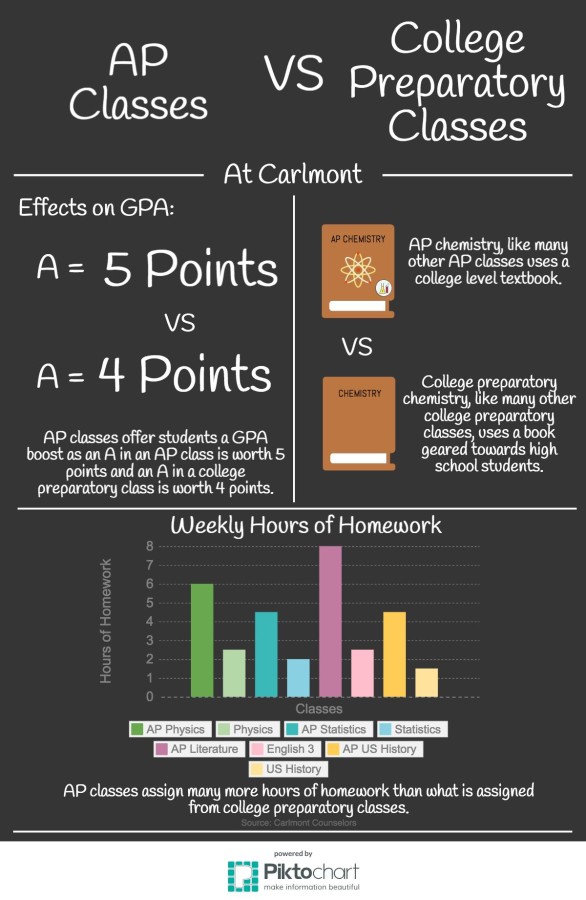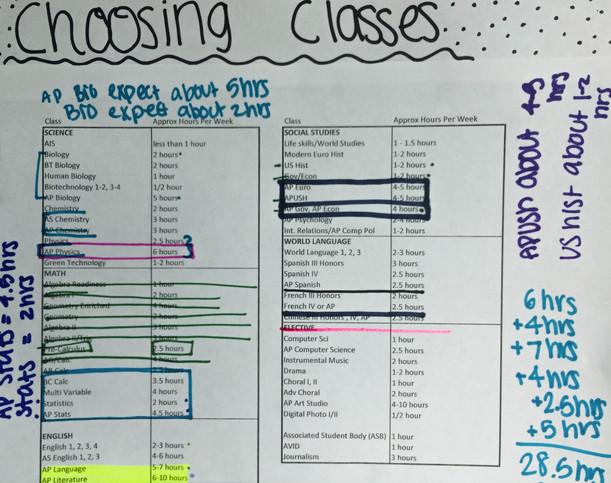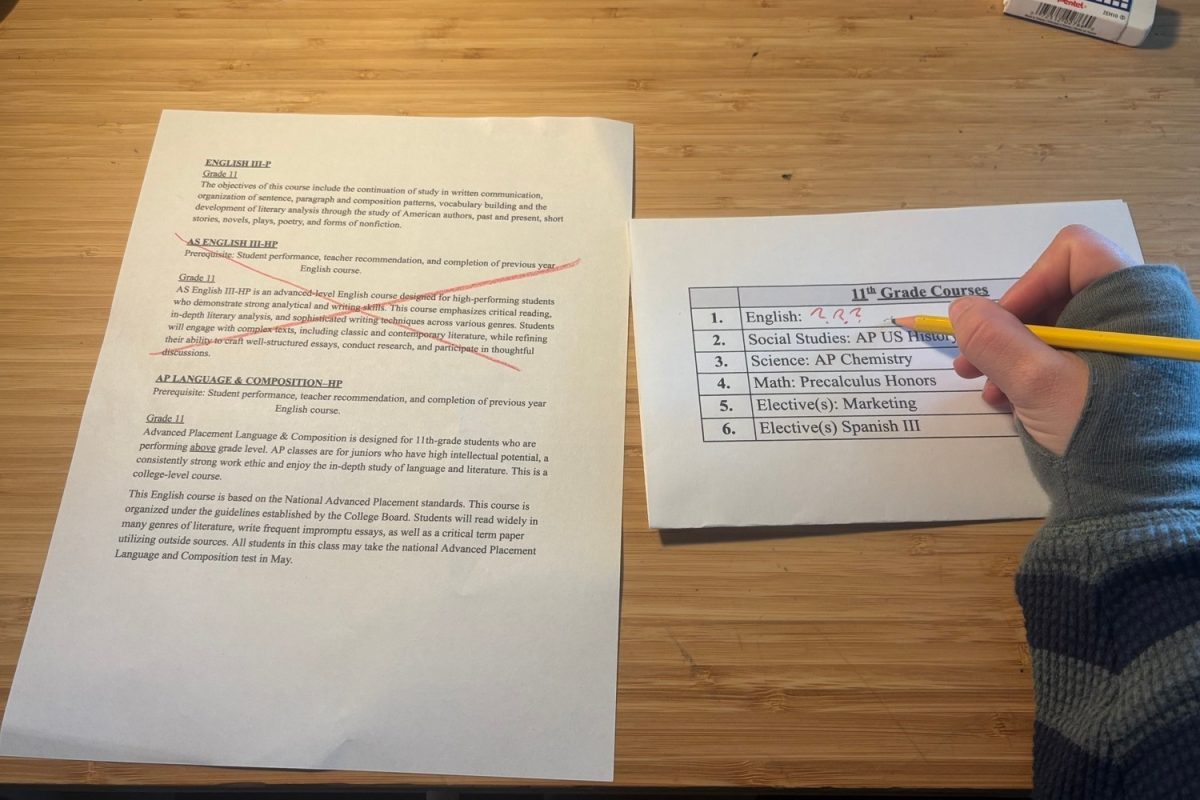It’s Monday night and sophomore Elise Haugerud is sitting at her desk, staring at her textbook.
Her brain is in a frenzy as she desperately tries to condense the 10 pages into just a few sentences.
She glances up at the clock; it’s 2 a.m. Her thoughts become a jumbled mess as she realizes how little sleep she will get tonight.
The stress takes over as she hopelessly fumbles through the textbook.
It’s now 3 a.m. and Elise is still working hard on her homework. However, in the back of her mind, she knows she has no interest in a college history course and wonders why she chose to take the AP history class.
Haugerud said, “I definitely know that I do not want to pursue a career or take any additional classes in that subject.”
Yet she still found it necessary to take the AP class.
Many ambitious students at Carlmont find themselves taking more than three advanced placement, or AP, classes by their senior year. In fact, this year alone, more than 700 students at Carlmont are taking at least one AP class.
These AP classes often require almost double the amount of work than what is required by a regular, college preparatory class. Students in these classes must endure a new level of intellectual pressure.
Many of these students find that these harder classes cause higher levels of stress. However, this stress can be tolerated if students are able to adjust to the pressure and enjoy the challenge of the classes.
Throughout the year, some students realize that their choices of AP classes were fueled solely by pressure to get into college instead of a genuine interest in the curriculum, making it harder to adjust to the unnecessary stress.
“Students should be choosing to take an AP class based on their academic strengths and interests,” said Carlmont Instructional Vice Principal Jennifer Cho. “However, in recent years, interests in college admissions have overruled the interests in the subject and curriculum.”
The appeal of AP classes is that they can allow students to save on college expenses by skipping introductory college courses. They also help students to build skills for college and are seen in a positive light by college admissions offices.
Because of the higher level of intellectual advancement and pressure put on the students, they are encouraged by the College Board to take AP classes in the subjects that they are most interested in for their college major.
Despite this recommendation to choose AP classes that focus on personal interests, students often find themselves taking these classes only for the improvement in chances of college admissions.
According to the College Board, the number of students taking AP classes has increased by about 1.5 million students in 14 years.
Haugerud commented on the possible causes for this increase and said, “I think it is more common now for students to feel pressured into taking harder classes because getting into good universities has become a competition.”
Many students agree with Haugerud and believe that rising pressures from family and the allure of college acceptances have caused the increase of interest in AP classes.
Senior Sam Levy, who takes three AP classes said, “A lot of students choose to take AP classes because they want to be the best that they can be. It is what colleges and society expect from us.”
Other students, like junior Ashley Wen choose to take AP classes for the challenge and encourage others to do the same.
“People should choose to do the work to challenge themselves, not for the more popular choice of college credits,” said Wen.
Although AP classes offer higher GPAs and greater chances for college admissions, it is important that students realize the amount of intellectual pressure they are signing themselves up for.
“Both students and teachers need to continue to reflect on the overall commitment of these classes and the pre-existing obligations in each of our lives,” said Cho. “We need to make sure that we don’t overload our schedules and cause ourselves too much stress.”













